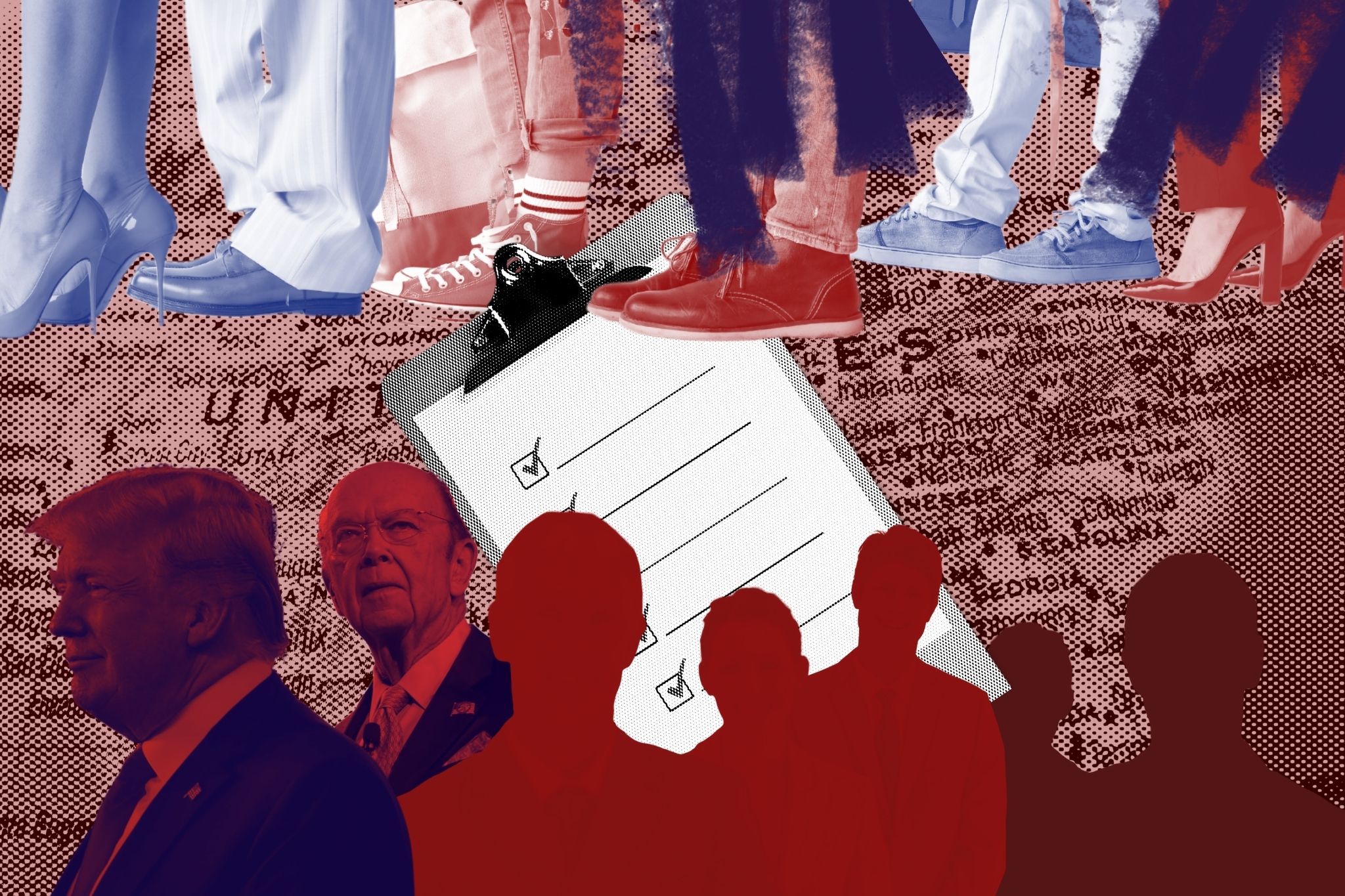Documents Show Far-Right Influence at Trump Commerce Department
In one email to former Secretary Ross, the head of an anti-immigration group lamented “the shift of political power” brought by immigration; other emails indicate outside efforts to place appointees at the department.

States looking ahead to this year’s round of redistricting are awaiting delayed apportionment numbers from the decennial census — numbers that would potentially have looked very different had the former president’s unprecedented political interference in the count gone unchecked.
During its first year, the Trump administration began its ill-fated attempt to add a citizenship question to the 2020 census. And in its final year, in the midst of the coronavirus pandemic, the administration sought to cut short the tally and to exclude undocumented immigrants from the apportionment figures, moves that threatened an undercount of certain groups and areas and raised new concerns about the politicization of the constitutionally mandated process.
Public reporting and document releases have revealed those efforts to be strategies long sought by conservatives to dilute representation of communities less likely to support them. Last week, American Oversight obtained records in response to a Freedom of Information Act request that further demonstrate the influence of far-right groups at the Trump administration’s Commerce Department, which oversees the Census Bureau. The documents include an email from the leader of an anti-immigration group lamenting “the shift of political power” brought by immigration; other emails indicate another right-wing group’s apparently successful efforts to place an appointee at the department.
On Dec. 26, 2019, Mark Krikorian, the executive director of the Center for Immigration Studies (CIS), an extreme anti-immigration group, emailed then-Commerce Secretary Wilbur Ross in an apparent follow-up to a call Ross had made to him about a CIS report “on the long-term consequences of mass immigration on apportionment of House seats.”
Krikorian wrote that some had “misunderstood” the report in order to exaggerate the impact of immigrant populations on the upcoming census or to conclude that immigrants shouldn’t be counted for the purposes of apportionment. Instead, Krikorian said, the report was looking at the long-term political effects of “mass legal immigration.” “Our big concern,” he wrote, “is that the [Trump] administration’s as-yet-unreleased immigration plan will set in stone the current legal immigration level of 1 million-plus each year, and thus continue this shift of political power toward blue states.”
The documents also contain emails from government affairs consultant Deecy Gray, who appears to have been working with or on behalf of the Federalist Society — the conservative legal organization that exercised significant power over Trump’s judicial nominations — to help find mid-level hires for the Commerce Department.
“In addition to working with [George Mason University] for the Secretary, and the department, [I] have been working with the Federalist Society,” Gray wrote on April 20, 2020. “We have come up with the five people below as good mid level prospects. … We hope you can use any, or all, of them.” One of the resumes included in Gray’s email was that of Trey Mayfield, who in September 2020 was appointed as counselor to Steven Dillingham, the director of the Census Bureau.
As secretary, Ross had been a key figure in the administration’s attempt to add a citizenship question to the census, which was ultimately blocked by the Supreme Court in June 2019. Documents released the year before had revealed that Ross had actively pushed for the question himself — despite his earlier testimony claiming the Justice Department had requested his department to add it. Calendars previously obtained by American Oversight also showed high-level engagements regarding the census in 2017.
Following the citizenship question’s defeat at the Supreme Court, Trump issued a memo in July 2020 directing Ross to provide information that would allow Trump to leave out the number of unauthorized immigrants living in the country from the apportionment tally. The move prompted several lawsuits challenging Trump’s authority to take such an unprecedented action, with multiple federal judges ruling against the former president.
An early executive order from President Joe Biden reversed that policy, and rescinded a July 2019 Trump order directing federal agencies to provide citizenship information to the Commerce Department. As NPR’s Hansi Lo Wang wrote last spring, that data “could be used to yield data that could radically change political mapmaking and shift the balance of political power across the United States over the next decade.”
In November, American Oversight filed Freedom of Information Act requests for the communications of top officials at the Census Bureau and the Commerce Department containing key terms related to Trump’s memo about apportionment numbers. On Monday, the Census Bureau rejected one of those requests, pointing instead to publicly available records. American Oversight is appealing that response.